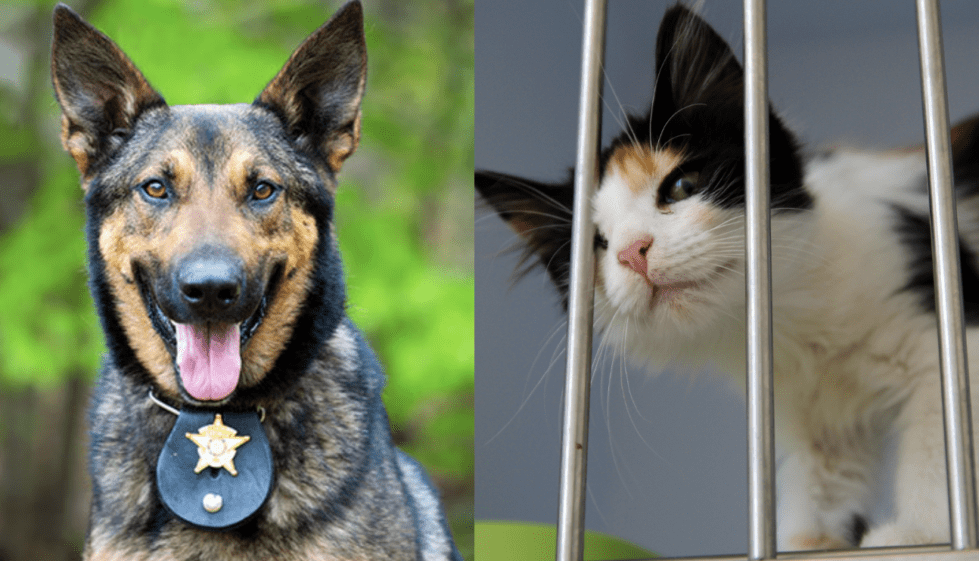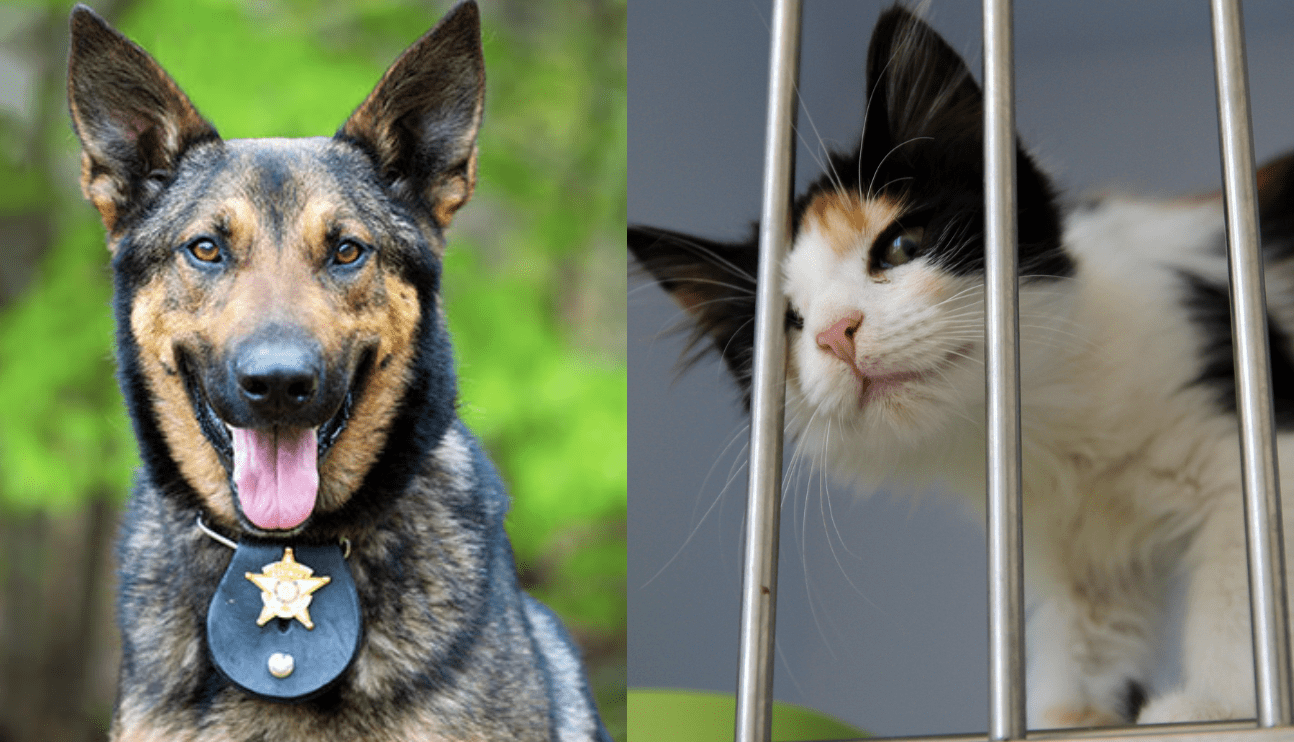Furry friends took over the conversation in the Senate Health and Social Services Meeting Wednesday.
Senate Bill 117, sponsored by Senate Minority Whip Brian Pettyjohn, R-Georgetown, aims to protect and treat police dogs who are injured in the line-of-duty.
SB 117 would authorize paramedics and other EMS providers to provide medical care to police dogs who were hurt at the scene of an emergency.
“These animals become part of the officer’s family, so it’s very important,” said Jeffrey Horvath, executive director of the Delaware Association of Chiefs of Police.
The act also grants civil immunity to paramedics and other EMS providers who provide medical services to police dogs as long as their efforts to assist the police dog were in good faith.
SB 117 makes it clear that in a situation where a human and a police dog need emergency medical care at the same time, the medical services personnel are prohibited from providing care to the police dog over the human, if the care of the police dog would hinder the human’s care.
“My cousin is a police officer, but also has a canine and I’ve watched the transition through getting the dog after it was trained all the way to its death,” said Sen. Nicole Poore, D-Delaware City. “Unfortunately, he’s on his second canine police dog, but I know that should anything happen to his partner, he would want everything to take place to save him.”
SB 117 now heads to the Senate floor.
Senate Bill 129, sponsored by Sen. Jack Walsh, D-Stanton/Newport, updates the Delaware Code concerning animal shelter standards and treatment of animals in shelters to codify best practices, which are already being followed by most shelters.
Walsh pointed out that Delaware is the only state in the country with no-kill laws, which means animal shelters aren’t allowed to euthanize healthy or treatable animals based on time limits or capacity of the shelter.
Animal shelters in the First State are, however, allowed to euthanize terminally-ill animals, animals suffering poor quality of life or those considered dangerous to public safety.
The legislation fills in gaps in existing law, such as requiring that animals be vaccinated against rabies before adoption or release. It also sets standards for feeding and access to water, facilities and enclosures, sanitation and disease control.
It also reduces the amount of times shelters must evaluate animals entering the shelter from 72 to 48 hours of entry.
Sen. Eric Buckson, R-Dover, was concerned that this would put a burden on the state’s shelters, to which Walsh said most shelters are already following the details of the bill, but this just puts it into law to establish state-wide mandates and regulations.
Sen. Laura Sturgeon, D-Hockessin, said the bill is important because it could help the state identify some shelters that might not be meeting standards.
“We take the animals, maybe from a difficult situation or cruelty situation, only to put them into another situation where they are not being treated the way they should be,” she said. “This will help prevent that.”
There’s animals that are in the shelters for a long period of time, Walsh said, so it’s crucial they are taken care of while living there.
“They have no voice, they depend on us,” he said. “We’ll continue to do this for our canine and felines.”
SB 129 will next be discussed by the full-body Senate.
Also Tuesday, Senate Bill 116, sponsored by Sen. Sarah McBride, D-Wilmington and committee chair, was released to the Senate floor.
SB 116 adopts the physician’s assistants licensure compact in Delaware. The Compact is an interstate compact for physician assistants aimed at strengthening access to medical services.
“We have a strong history in recent years of adopting licensure compacts to help improve patient access to medical professionals throughout our state,” McBride said.
The bill would help enhance the portability of licensure to practice in Delaware as a physician assistant while safeguarding the safety of patients.
Physician assistants in a compact member state may practice in another compact member state. Rather than having to obtain an individual license in every state, they would be able to apply for a compact privilege, removing the burden of maintaining multiple licenses.
Texas, Rhode Island, Ohio, Utah and Minnesota are the other five states in the PA Licensure Compact.

Raised in Doylestown, Pennsylvania, Jarek earned a B.A. in journalism and a B.A. in political science from Temple University in 2021. After running CNN’s Michael Smerconish’s YouTube channel, Jarek became a reporter for the Bucks County Herald before joining Delaware LIVE News.
Jarek can be reached by email at [email protected] or by phone at (215) 450-9982. Follow him on Twitter @jarekrutz and on LinkedIn
Share this Post











